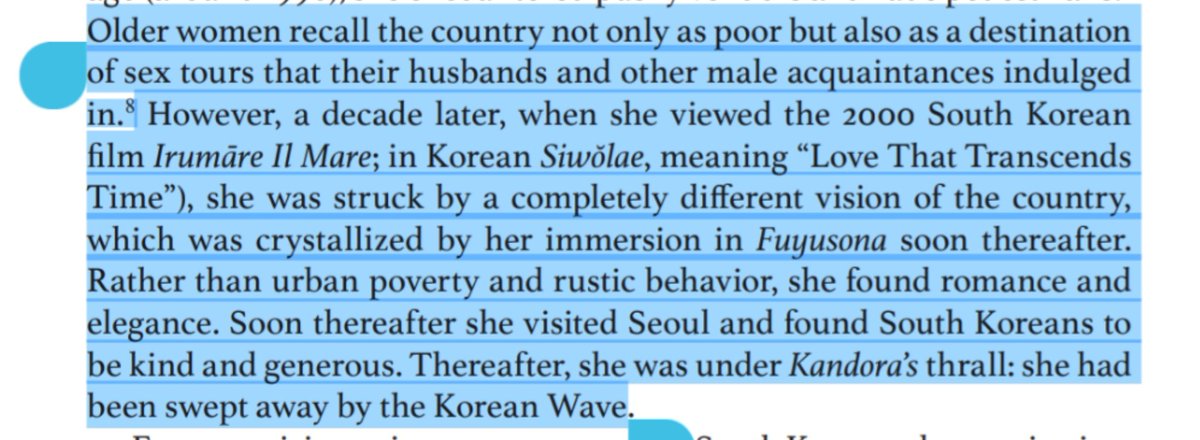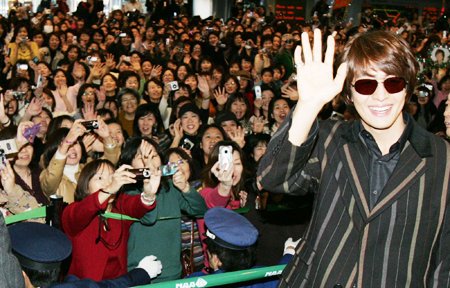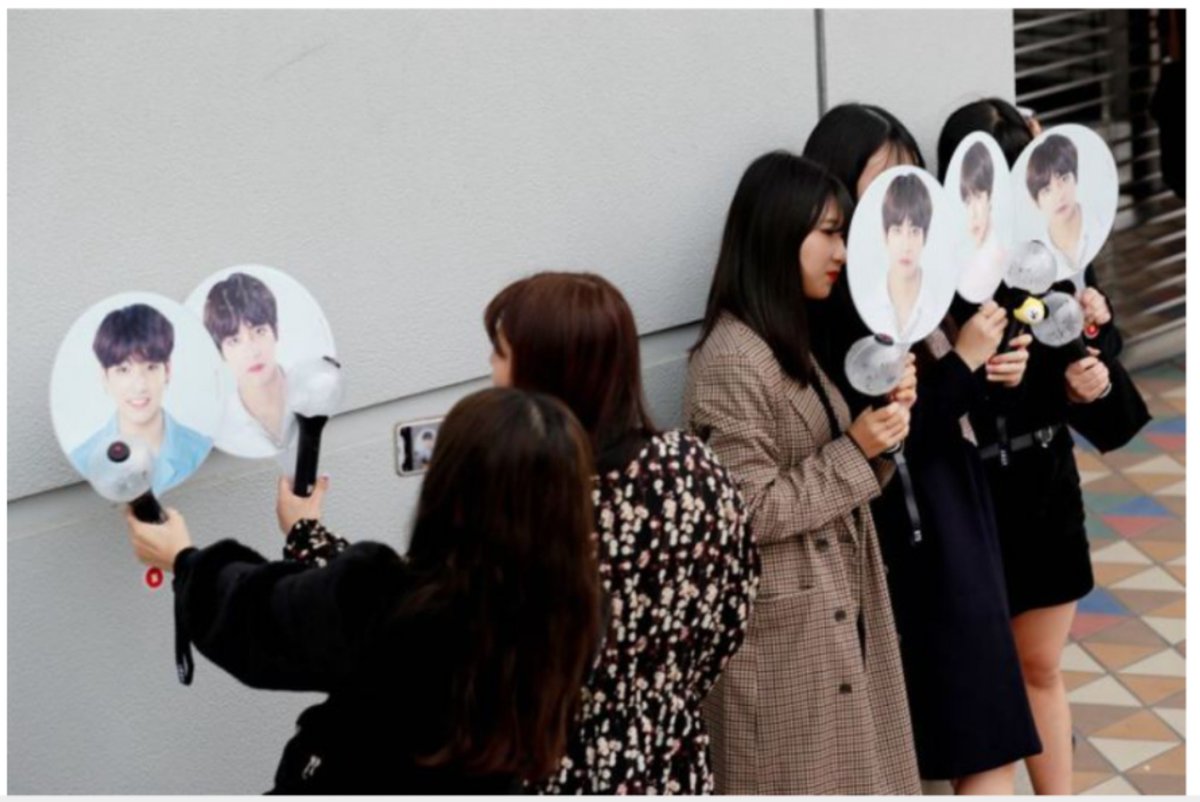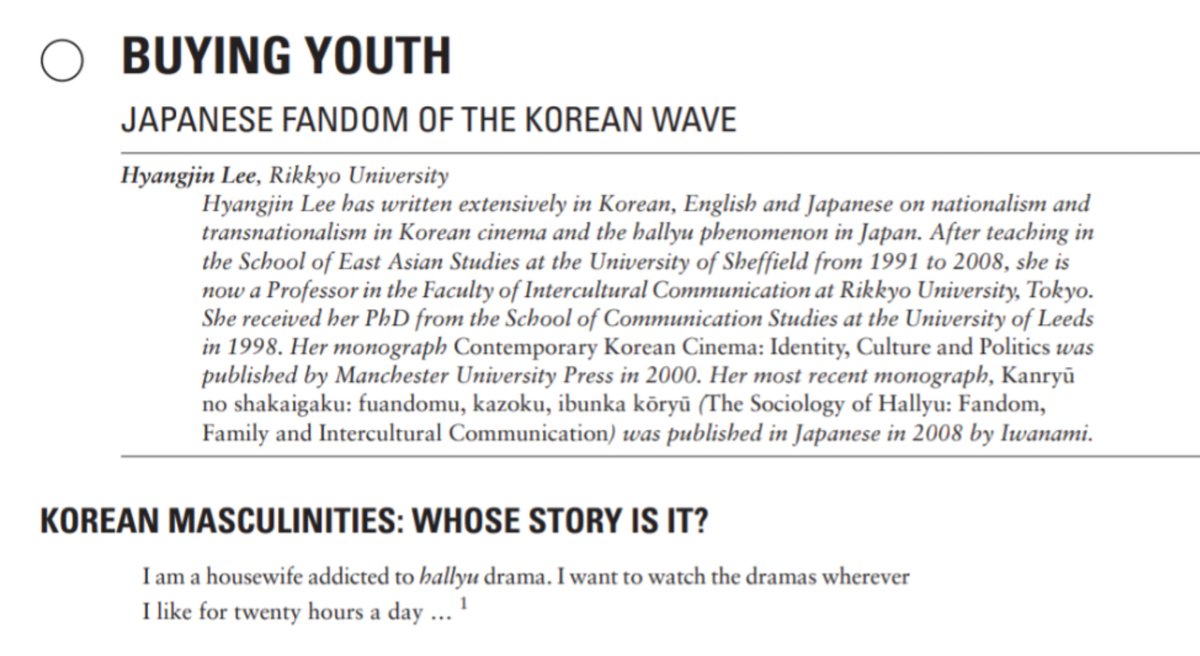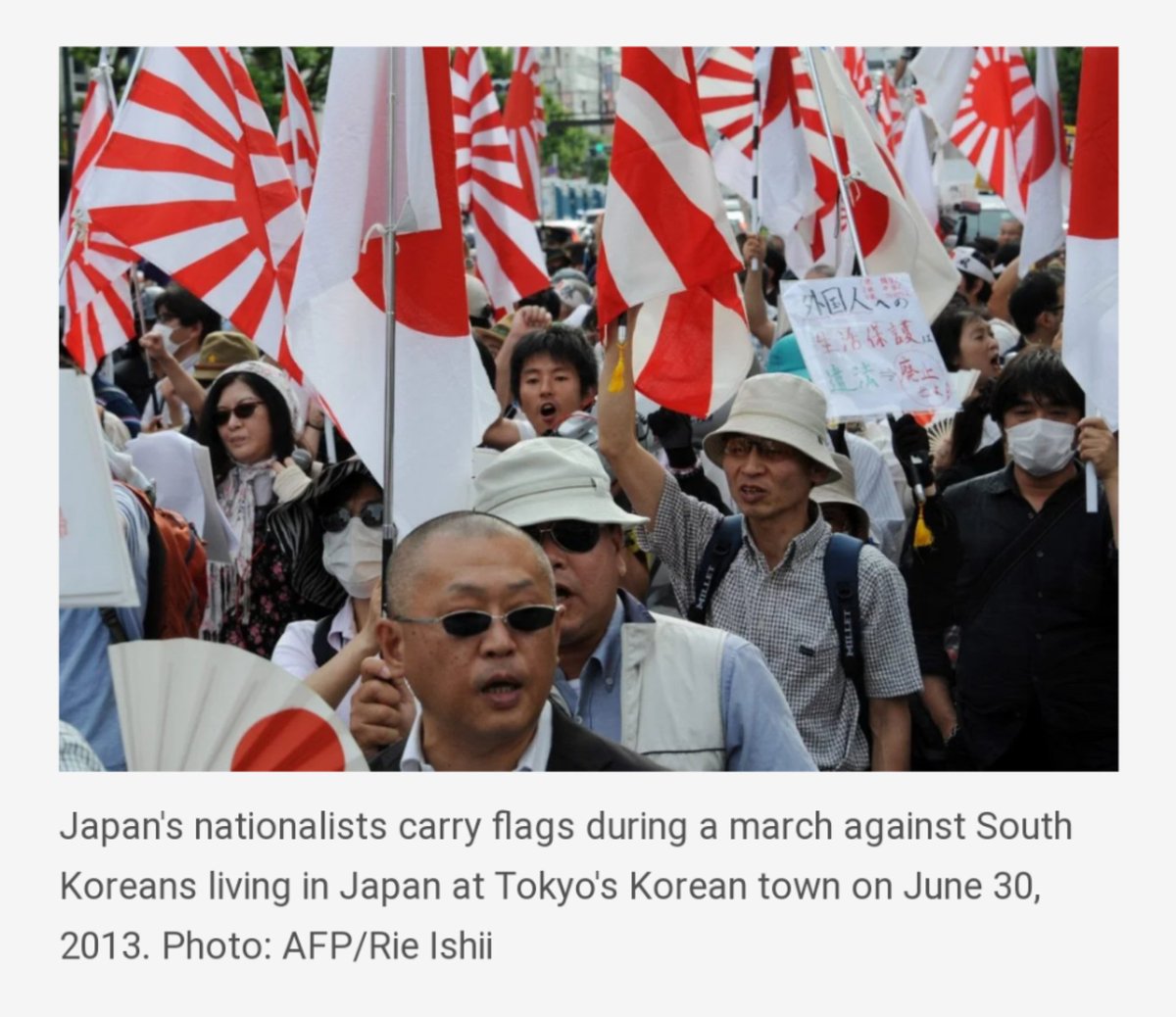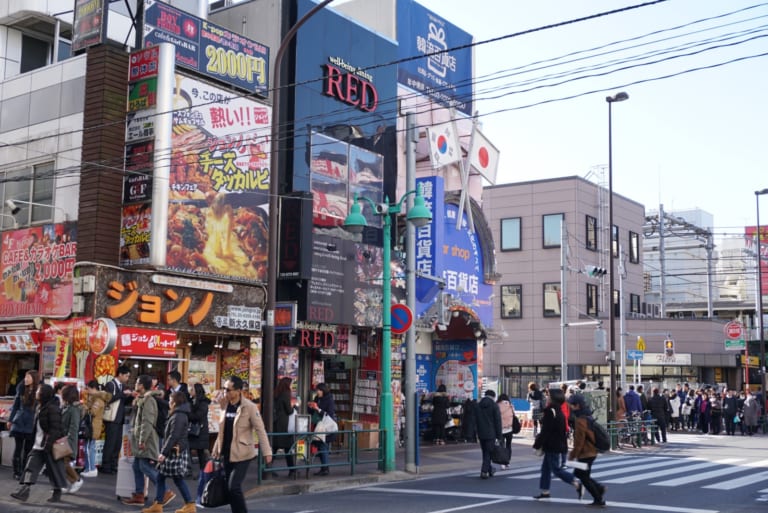Gender roles, masculinity, K-Pop, and how Japanese housewives built a foundation for improved Korea-Japan relations: A thread
First, getting this out of the way. If you don& #39;t know about Japan& #39;s colonial occupation of Korea, comfort women, and the issue of historical revisionism, do not read this thread. Go educate yourself, then come back. https://twitter.com/TheKpopProf/status/1317975016726843397?s=19">https://twitter.com/TheKpopPr...
Japan and Korea officially normalized relations in 1965, but even in the 90s, the image that Japanese had of Korea was still that of an inferior state, underdeveloped cities & backwards people. This started to change in the early 00s with K-dramas hitting Japan
The halls of history will always showcase 2002& #39;s Winter Sonata. I couldn& #39;t finish watching this in HS...I was already a melodramatic emo kid it made me cry so much, I just tapped out. Little did I know Winter Sonata would be a huge hit & spark the popularity of K-dramas in Japan.
In particular, Bae Yong-joon captivated the so called middle aged ladies over there. They referred to him as "Yon-sama" and he exemplified a type of masculinity they had never quite seen before. Strong, but beautiful, tragic, kind hearted, driven by the trueness of his love!
Seriously, like...they really, really liked him  https://abs.twimg.com/emoji/v2/... draggable="false" alt="😂" title="Gesicht mit Freudentränen" aria-label="Emoji: Gesicht mit Freudentränen">
https://abs.twimg.com/emoji/v2/... draggable="false" alt="😂" title="Gesicht mit Freudentränen" aria-label="Emoji: Gesicht mit Freudentränen">
For these older women (and by older, I& #39;m talking like older than 30- because East Asian patriarchy sucks and considers people like me over the hill) the image of Korea shifted significantly, as described in Lie& #39;s 2016 essay Obasan and Kanryu:
In Bae Yong-jun, a seed was planted, an image of the ideal image of Korean masculinity that had strong appeal for this one demographic that had historically not had a strong voice in society: housewives. This then provided the foundation for K-pop music fandom to occur.
These older ladies were the pioneer fans of hallyu and then they passed it along to the younger generation (their daughters) where the fandom holds strong to this day. Thus, the traditional gender and age heirarchy in Japan saw a kind of revolutionary reversal.
The effects of this should not be regarded lightly. The "Korean Wave" in Japan led further media collaboration on TV and film, cross tourism, and a general improvement in mutual image. The joint hosting of the World Cup in 2002 saw a high point in the two countries relations.
Older female fans in Japan have been the stronghold for all this, seeing the romance in K-dramas as their escape from their normal lives, learning some Korean, taking trips to Seoul with their daughters, telling their husbands what kind of relationship they really want. Source:
You can see then, how the Korean Wave itself also caused a predictable backlash of anti-Koreanism.
If the Korean pop culture fandom in Japan has been led by women, the anti-Korean movement (Korea-haters) have been led by men.
If the Korean pop culture fandom in Japan has been led by women, the anti-Korean movement (Korea-haters) have been led by men.
They are very closely aligned with right wing nationalism and xenophobia, since their shared message is that Koreans are threatening the purity of the Japanese family and nation. They are what we would call "incels" over here. They& #39;re considered by many to be a loud minority.
Shin Okubo, the Korean district in Tokyo, grew popular from 2004-2015-- previously, it had been a "disreputable" part of town where a large number of ethnic Korean people lived. Fans of K-pop now go to this area to indulge in Korean food, music, beauty products, and language.
A few years ago the escalating Dokdo-Takeshima dispute set off tensions between the countries again. Fans of K-pop, as well as ppl of Korean descent living in Japan (the Zainichi Koreans), got harassed and threatened.
The media especially plays a role in fanning these flames, fixating on every single trade dispute or territorial dispute between Korea and Japan. However, the die-hard fanbase of K-pop culture is largely unconcerned with the political clashes. https://news.cgtn.com/news/2019-08-09/Japanese-love-for-Korean-culture-continues-despite-political-dispute-J1oXsYxUL6/index.html">https://news.cgtn.com/news/2019...
Lee and Hyangjin in their essay say, Hallyu fans in Japan led the way to "a new form of imagined cross-cultural citizenship."
And just like women outlive men, the new cultural bonds being made will outlast the political conflicts.
/End
And just like women outlive men, the new cultural bonds being made will outlast the political conflicts.
/End
The prompt @TheKpopProf have for this was "can you see Korea and Japan solving their historically rooted issues?" And the answer is really, I think so.
But if that day comes, it will come with the growing power and influence of women in both countries.
But if that day comes, it will come with the growing power and influence of women in both countries.
https://twitter.com/akarinah0/status/1318696932638904324?s=1">https://twitter.com/akarinah0... Yes! There are SO many more factors involved that I do NOT have the depth of knowledge to list out, but cultural exchange & an improved image of "the other" IS a core part. & My thread is highlighting that from a K-pop fandom angle- a slice of a slice!
I needed to add the disclaimer that this is by no means meant to be comprehensive, or including every dimension of KR-JP history or even the pop culture history. If there are other elements you want to bring up, pls list it in the replies and share the knowledge  https://abs.twimg.com/emoji/v2/... draggable="false" alt="🖤" title="Schwarzes Herz" aria-label="Emoji: Schwarzes Herz">
https://abs.twimg.com/emoji/v2/... draggable="false" alt="🖤" title="Schwarzes Herz" aria-label="Emoji: Schwarzes Herz">
Interesting! https://twitter.com/shrcksu/status/1318740445833400323?s=19">https://twitter.com/shrcksu/s...
Ok. My perspectives on this are aligned with that of my mom, who remembers the Seoul she lived in from 1960-1987 and is a heavy consumer of Korean pop culture. From the 2000s onward she always had so much to say about Korea& #39;s changing image and influence globally, including Japan

 Read on Twitter
Read on Twitter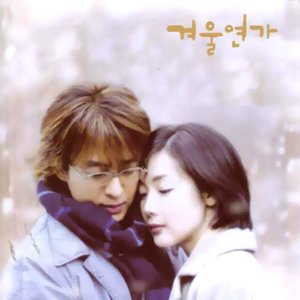
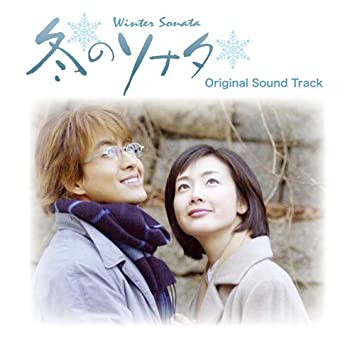
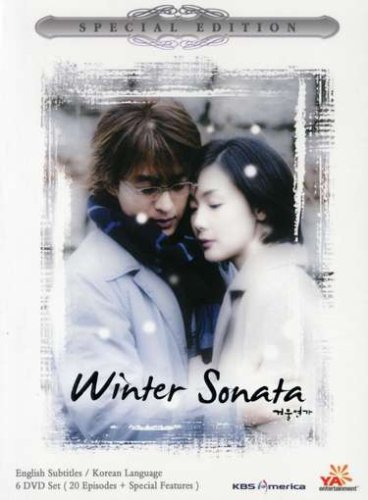
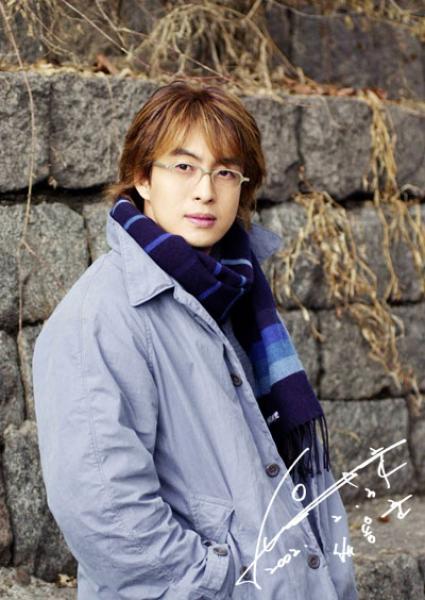
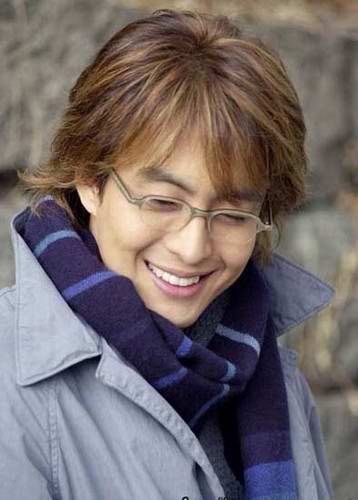
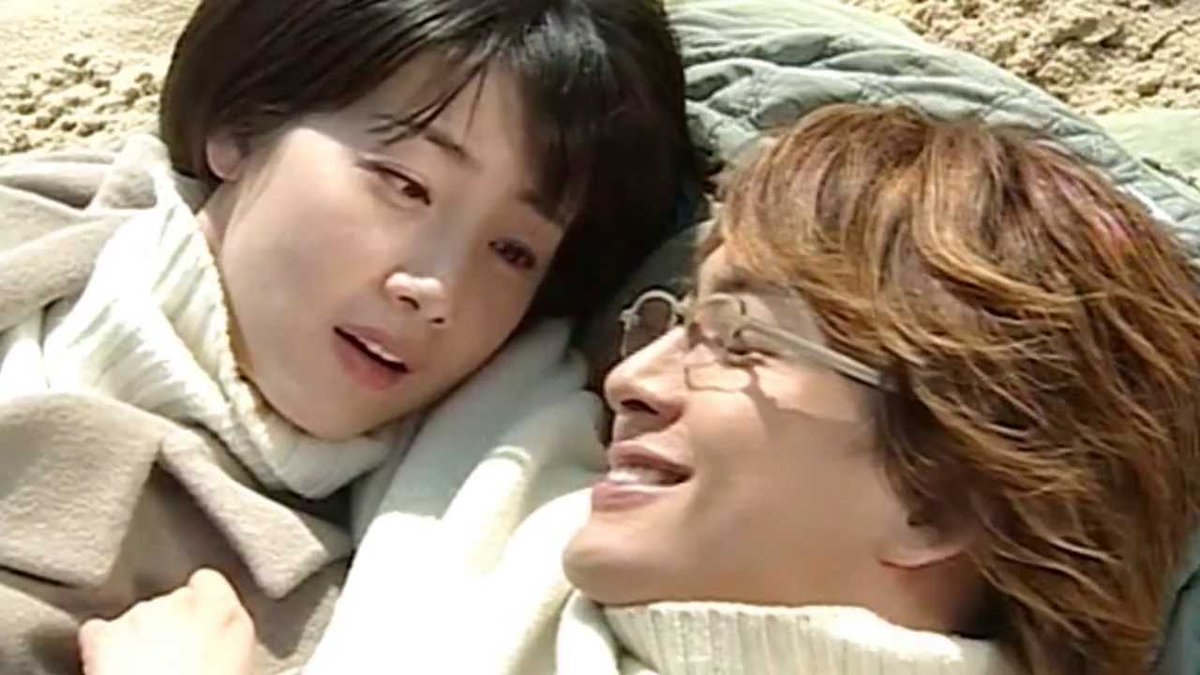
 " title="Seriously, like...they really, really liked him https://abs.twimg.com/emoji/v2/... draggable="false" alt="😂" title="Gesicht mit Freudentränen" aria-label="Emoji: Gesicht mit Freudentränen">" class="img-responsive" style="max-width:100%;"/>
" title="Seriously, like...they really, really liked him https://abs.twimg.com/emoji/v2/... draggable="false" alt="😂" title="Gesicht mit Freudentränen" aria-label="Emoji: Gesicht mit Freudentränen">" class="img-responsive" style="max-width:100%;"/>
